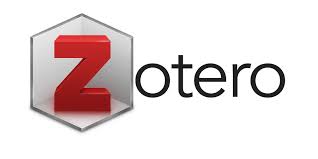Efektivitas Penerapan Scaffolding terhadap Self Efficacy Mahasiswa pada Mata Kuliah Matematika Ekonomi di Program Studi Pendidikan Ekonomi STKIP Kumala Lampung
DOI:
https://doi.org/10.29240/ja.v3i2.4031Keywords:
Scaffolding, Self efficacy, Economic MathematicsAbstract
The problem in this study is that students' self efficacy is still lacking in the learning process which has an impact on the final value of the economic mathematics course. This study aims to determine the effectiveness of the application of scaffolding on student self efficacy in the economic mathematics course of STKIP Kumala Lampung Metro. This research is an experimental research with one group pretest-posttest design. The population in this study were all students of Economic Education in the fourth semester of the 2020/2021 academic year, while the sample consisted of 30 students. The sampling technique used is saturated sampling. The data collection technique was done by using a questionnaire. In this study, prerequisite tests and data analysis processes, both from normality tests and hypothesis testing, use the help of SPSS data processing applications. The results obtained that the distribution is normal, then the t-test with a sig level of 5% obtained the results thitung (3,161) > ttabel (2,045) which means there is a difference between before and after the application of scaffolding on students' self efficacy. Furthermore, for the effect size test results obtained 0.577 which means it is included in the medium category. So it can be concluded that there is an effectiveness of the application of scaffolding on the self efficacy of students in the economics mathematics course.
Downloads
References
Akhtar, M. (2014). Patterns of Scaffolding in One-to-One Mathematics Teaching: An Analysis. Educational Research International, 3(1), 71-79.
Dunst, C. H. (2004). Guidelines for Calculating Effect Sizes. Centerscope, 3(1), 1-10.
Hamalik, O. (2008). Kurikulum dan Pembelajaran. Jakarta: Bumi Aksara.
Hidayat, D. (2015). Teorema dan Aplikasi Psikologi Kepribadian dalam Konsling. Jakarta: Ghalia Indonesia.
Liu, X. (2009). The Effect of Mathematics Self-efficacy on Mathematics Achievement of High School Students. NERA Conference Proceedings. University of Connecticut.
Machmud, T. (2011). Scaffolding Strategy in Mathematics Learning. Proceeding International Seminar and the Fourth National Conference on Mathematics Education. ISBN: 9778-979-16353-7-0, pp. 429-440. Yogyakarta: Yogyakarta State University.
Manafe, Y., Setyosari, P., Kuswandi, D., & Ulfa, S. (2016). Pengaruh Strategi Kerjasama Kelompok dan Efikasi Diri terhadap Hasil Belajar Keterampilan Teknikal. Jurnal Pendidikan Humaniora, 4(3), 152-162.
Noer, S. H. (2012). Self Efficacy Mahasiswa Terhadap Matematika. Seminar Nasional Pendidikan Matematika FMIPA. ISBN: 978-979-16353-8-7. Yogyakarta: Universitas Negeri Yogyakarta.
Nofiansyah, W. S. (2015). Analisis Proses Scaffolding pada Pembelajaran Matematika di Kelas VIII SMP Negeri 4 Karanganyar Tahun Pelajaran2013/2014. Jurnal Elektronik Pembelajaran Matematika, 9(3), 947-958.
Sanjaya, W. (2015). Penelitian Pendidikan Jenis, Metode dan Prosedur. Jakarta: Prenadamedia Grup.
Sugiyono. (2014). Metode Penelitian Kuantitatif, Kualitatif, dan R&D. Bandung: Alfabeta.
Tanjung, R. D. (2012). Diagnosis Kesulitan Belajar Matematika SMP pada Materi Persamaan Garis Lurus. Unnes Journal of Mathematics Education, 1(1), 52-57.
Zeldin, A. (2000). Sources and Effects of the Self-Efficacy Beliefs of Men with Careers in Mathematics, Science, and Technology. Emory University. Disertasi: tidak dipublikasikan. [Online]. Tersedia: http://www.des.emory.edu/mfp/ZeldinDissertation2000.PDF
Downloads
Published
Issue
Section
Citation Check
License
Authors who publish with ARITHMETIC: Academic Journal of Math agree to the following terms:
- Authors retain copyright and grant the journal right of first publication with the work simultaneously licensed under a Creative Commons Attribution-NonCommercial-ShareAlike 4.0 International License (CC BY-NC-SA 4.0) that allows others to share the work with an acknowledgment of the work's authorship and initial publication in this journal.
- Authors are able to enter into separate, additional contractual arrangements for the non-exclusive distribution of the journal's published version of the work (e.g., post it to an institutional repository or publish it in a book), with an acknowledgment of its initial publication in this journal.
- Authors are permitted and encouraged to post their work online (e.g., in institutional repositories or on their website) prior to and during the submission process, as it can lead to productive exchanges, as well as earlier and greater citation of published work (See The Effect of Open Access).







